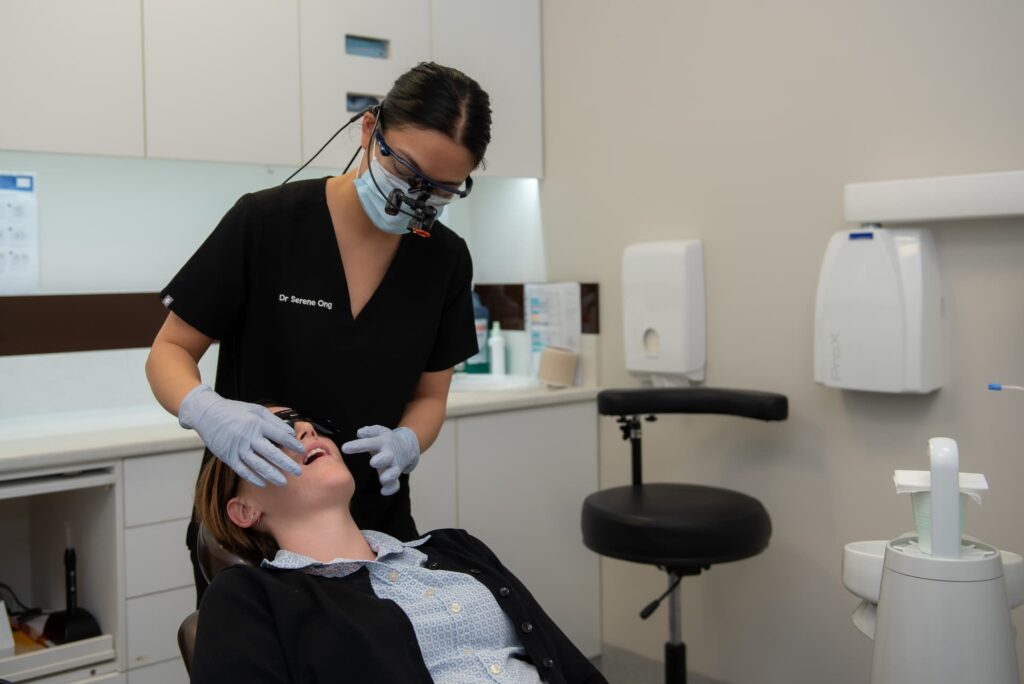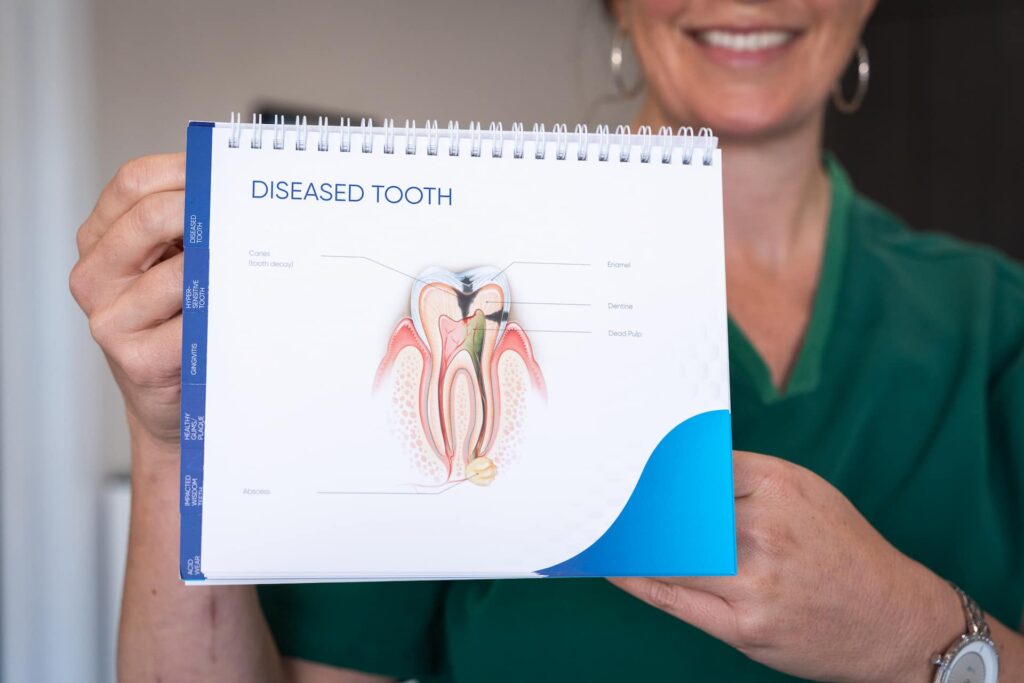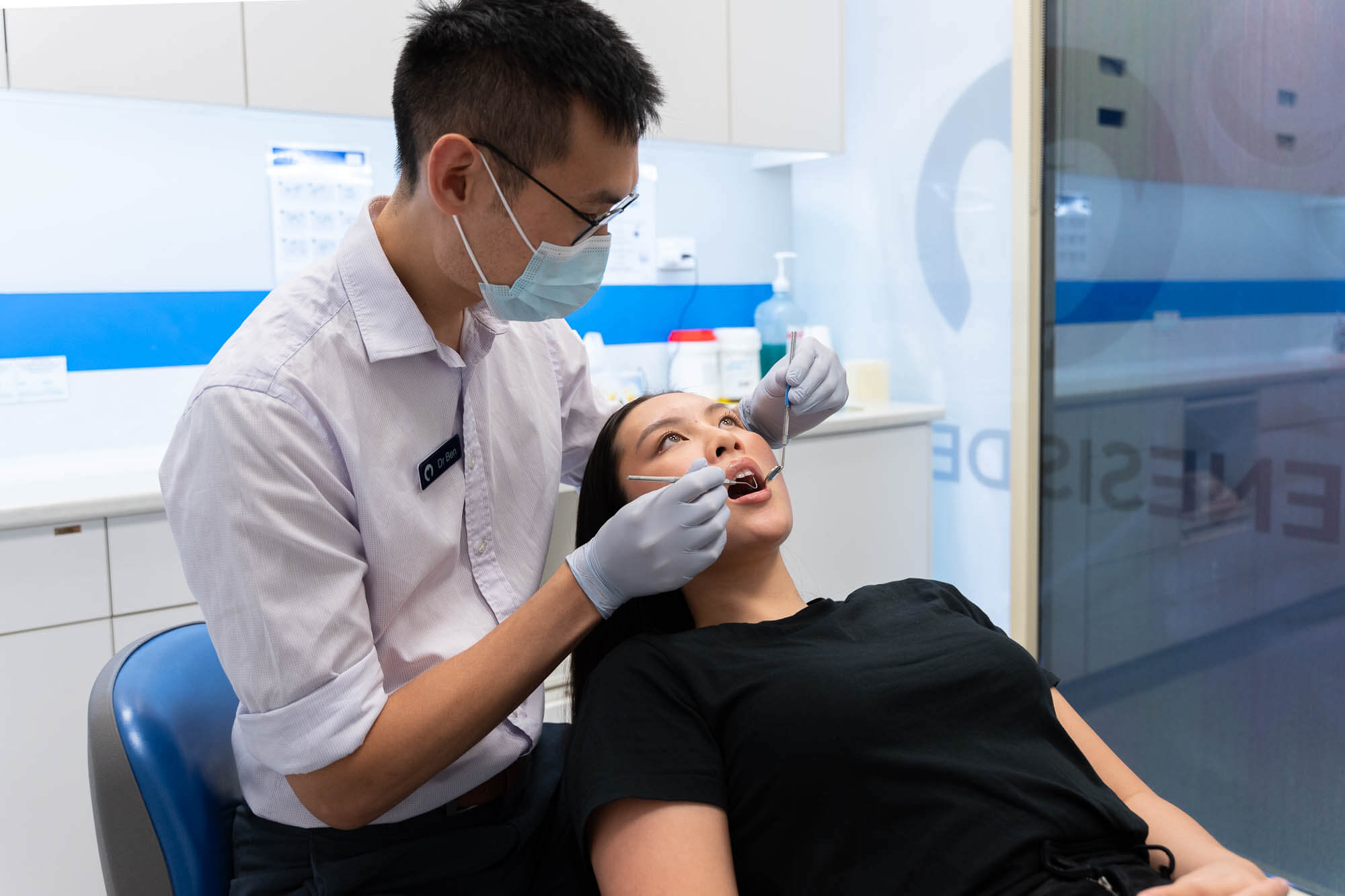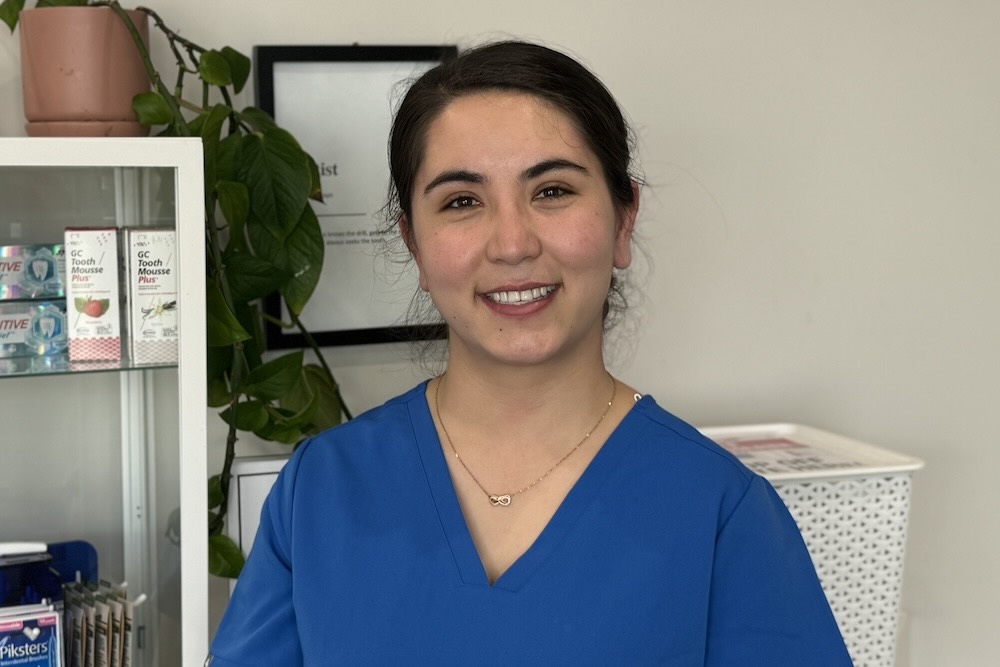Periodontitis (Gum Disease)
What is Periodontitis?

What is Periodontitis?
Periodontitis (also known as gum disease) is a serious gum infection that damages the soft tissue and bone supporting your teeth. If left untreated, it can lead to tooth loss and affect your overall health. This advanced stage of gum disease typically begins as gingivitis (gum inflammation) and progresses silently—often without pain—until significant damage has occurred. At Genesis Dental in Canning Vale, we’re here to detect and treat periodontitis early, helping you protect your smile for the long term.
Book now to take the first step toward healthier gums.
Common Causes of Periodontitis
Periodontitis often begins with plaque buildup and can be influenced by several risk factors:
Poor oral hygiene and infrequent brushing/flossing
Smoking or tobacco use
Genetic predisposition
Chronic conditions such as diabetes
Hormonal changes (e.g. pregnancy, menopause)
Certain medications that reduce saliva
Stress, which can impair immune response
Poor-fitting dental appliances or restorations


Symptoms of Periodontitis
Early signs of gum disease can be easy to overlook. Watch for the following symptoms:
Red, swollen or tender gums
Bleeding during brushing or flossing
Persistent bad breath
Receding gums or “long” teeth appearance
Loose or shifting teeth
Pain when chewing
Formation of deep pockets between teeth and gums
If you’re experiencing any of these symptoms, it’s time to book a dental consultation.
Our Treatments for Periodontitis
Genesis Dental in Canning Vale offers proactive, targeted care to help manage gum disease and restore oral health. When detected early, periodontitis can often be controlled with non-surgical treatments and professional maintenance. However, if left untreated, it may lead to more serious outcomes—such as the need for a tooth extraction, root canal therapy, or even dental implants to replace lost teeth.
To prevent these complications, we may recommend the following:
Periodontitis Relief at Home
Alongside professional care, these daily habits can help manage and slow periodontitis:
Brush gently twice daily using a soft-bristled toothbrush and fluoride toothpaste
Floss daily to remove plaque between teeth
Use an antiseptic mouthwash if recommended by your dentist
Quit smoking to improve healing and reduce gum inflammation
Manage systemic conditions such as diabetes with medical guidance
Keep all scheduled dental appointments

How to Prevent Periodontitis
Prevention is key to avoiding the long-term effects of gum disease:
- Maintain a thorough daily oral hygiene routine
Eat a balanced, low-sugar diet rich in whole foods
Schedule regular dental checkups and cleans
Avoid tobacco use
Address early gum concerns such as gingivitis promptly
Replace ill-fitting dentures or restorations if causing irritation
Seek treatment for dry mouth or hormonal imbalances if applicable

When to See a Dentist for Periodontitis
If your gums are bleeding, swollen, or painful—or you’ve noticed persistent bad breath or loose teeth—don’t wait. Periodontitis can cause permanent damage if left untreated.
Early treatment is the best defence against tooth loss. Our experienced team will assess your gum health and provide a personalised plan to restore comfort and stability.
Book your appointment today.
Associations
Our dentists are members of reputable dental associations, including the Australian Dental Association WA (ADAWA) and the Australian Health Practitioner Regulation Agency (AHPRA). We are also accredited by QIP, meaning our practice adheres to industry guidelines and regulations.
We accept all health funds, claimable on the spot for your convenience. We are preferred providers with HBF, HCF, CBHS and NIB, meaning you can maximise your rebate.
We also provide interest free payment plan options via The Tooth Market’s Fund My Dental. We also participate in government aided programs such as the Child Dental Benefits Scheme and provide top quality treatment for Department of Veterans’ Affairs (DVA) card holders.









Meet Our Team

Dr. Serene Ong
Dentist

Dr. Ben Luu
Dentist

Dr. Ashleigh Furfaro
Dentist

Dr. Jun Liew
Dentist

Fatima Akbari
Oral Health Therapist
Periodontitis FAQ's
What is the difference between gingivitis and periodontitis?
Gingivitis is the early stage of gum disease and is reversible. If left untreated, it can progress into periodontitis, which causes permanent damage to the gums and bone.
Can periodontitis be cured?
While advanced periodontitis cannot be fully reversed, it can be effectively managed with ongoing care and professional treatment to prevent further damage.
Does periodontitis cause tooth loss?
Yes, if untreated, periodontitis can lead to loosening and eventual loss of teeth due to gum and bone deterioration.
How often should I see the dentist for gum disease?
Every 3–6 months is generally recommended for those with gum disease, but your dentist will provide a schedule based on your condition.
Is treatment painful?
We make every effort to ensure comfort throughout treatment. For deep cleanings, a local anaesthetic is often used to numb the area and reduce discomfort.
Contact Us
Contact our caring dentists in Canning Vale today with any questions about periodontitis or to book your consultation to start your journey to a healthy smile.